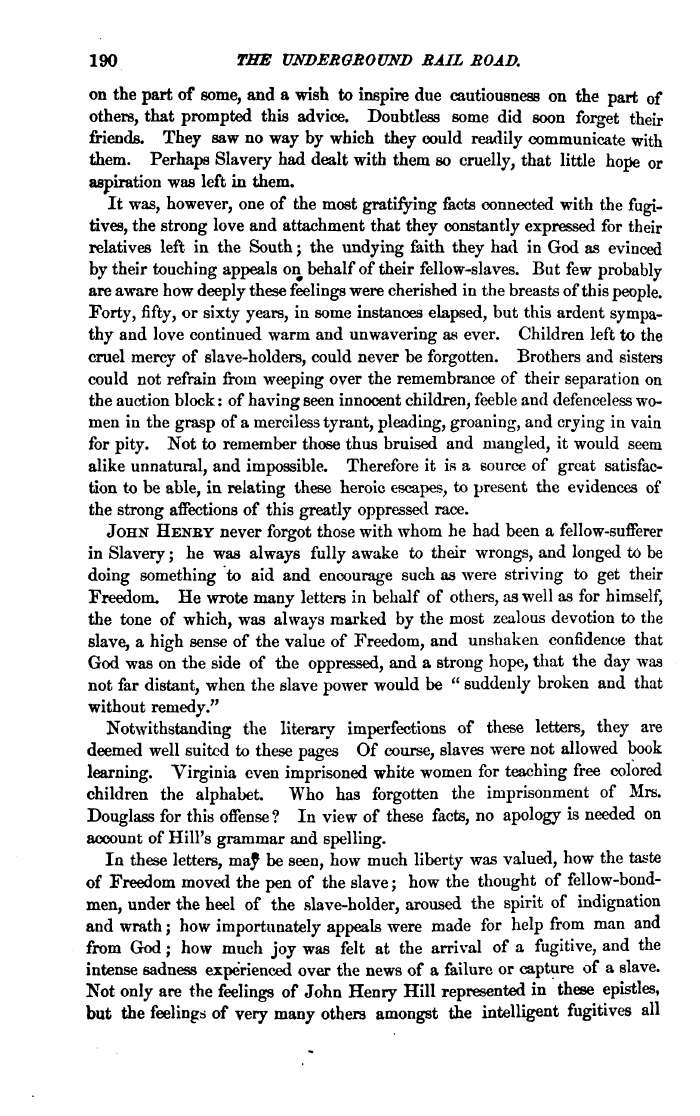 |
||||
 |
||||
| 190 THE UNDERGROUND RAILROAD. on the part of some, and a wish to inspire doe cautiousness on the part of others, that prompted this advice. Doubtless some did soon forget their friends. They saw no way by which they could readily communicate with them. Perhaps Slavery had dealt with them so cruelly, that little hope or aspiration was left in them. It was, however, one of the most gratifying facts connected with the fugitives, the stroDg love and attachment that they constantly expressed for their relatives left in the South; the undying faith they had in God as evinced by their touching appeals on behalf of their fellow-slaves. But few probably are aware how deeply these feelings were cherished in the breasts of this people. Forty, fifty, or sixty years, in some instances elapsed, but this ardent sympathy and love continued warm and unwavering as ever. Children left to the cruel mercy of slave-holders, could never be forgotten. Brothers and sisters could not refrain from weeping over the remembrance of their separation on the auction block: of having seen innocent children, feeble and defenceless women in the grasp of a merciless tyrant, pleading, groaning, and crying in vain for pity. Not to remember those thus bruised and mangled, it would seem alike unnatural, and impossible. Therefore it is a source of great satisfaction to be able, in relating these heroic escapes, to present the evidences of the strong affections of this greatly oppressed race. JOHN HENEY never forgot those with whom he had been a fellow-sufferer in Slavery; he was always fully awake to their wrongs, and longed to be doing something to aid and encourage such as were striving to get their Freedom. He wrote many letters in behalf of others, as well as for himself, the tone of which, was always marked by the most zealous devotion to the slave, a high sense of the value of Freedom, and unshaken confidence that God was on the side of the oppressed, and a strong hope, that the day was not far distant, when the slave power would be " suddenly broken and that without remedy." Notwithstanding the literary imperfections of these letters, they are deemed well suited to these pages Of course, slaves were not allowed book learning. Virginia even imprisoned white women for teaching free colored children the alphabet. Who has forgotten the imprisonment of Mrs. Douglass for this offense ? In view of these facts, no apology is needed on account of Hill's grammar and spelling. In these letters, maŁ be seen, how much liberty was valued, how the taste of Freedom moved the pen of the slave; how the thought of fellow-bondmen, under the heel of the slave-holder, aroused the spirit of indignation and wrath; how importunately appeals were made for help from man and from God; how much joy was felt at the arrival of a fugitive, and the intense sadness experienced over the news of a failure or capture of a slave. Not only are the feelings of John Henry Hill represented in these epistles, but the feelings of very many others amongst the intelligent fugitives all |